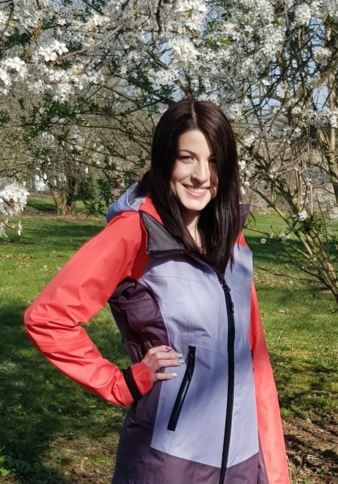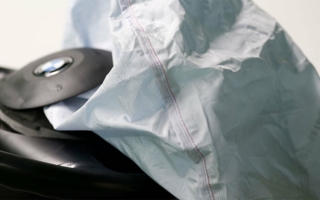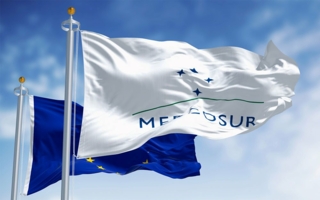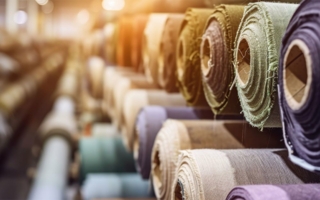19/06/2019 – Sustainability — auf Deutsch lesen
“We need to get into chemistry”
How would it be if a PET bottle that had been recycled into fibres were then to re-emerge successively as different types of clothing?
It is a notion of sustainability that company director Thomas Weiske has clung on to since 2006 – with encouraging results in the meantime.
His company develops and produces yarns and fibres in Hof, in the state of Bavaria. Techtextil 2019 was the event at which he presented to the trade the initial successful results of the Greencycle sustainability project. His message: that the virtually insuperable boundaries between textiles and chemistry need to be torn down if a programme of intelligent and permanent recycling on the ‘cradle-to-cradle’ principle is to progress. This will help to prevent synthetics containing harmful substances, for example, from subsequently entering into the yarns and lifecyles of textiles.
‘Wear-to-wear’
The ‘Permanent Textile Recycling System’ developed by C. Weiske is represented by two items of clothing – a waterproof jacket and a T-shirt. What is remarkable about the first demonstration project with key partners Schoeller AG of Switzerland and Sympatex is that the T-shirt is in practical terms the grandchild of what was once a PET bottle, and contains polyethylene fibres that saw their first outing in textile form as protective rainwear. The model shows that with its recycled, low-pollutant filaments and staple fibre yarns, the Hof-based specialists are now in a position to approach manufacturers of vehicle upholstery, mattresses, furnishing fabrics and workwear, to design products that, at the end of their useful lives, can once again be recycled. Since this is too complex a process to describe succinctly, Thomas Weiske boils it down to a comparison: it is easier in relative terms, he says, to produce new moulded parts from recycled plastics than to produce a filament finer than a human hair.
Repeatable multiple times
According to Weiske the recycling methods, which are technically highly complex, are at present more a ‘labour of love’ and are not immediately commercially viable. On the other hand, this is after all only an interim step towards a recycling concept that can truly be called revolutionary. Ideally, the ‘grandchild’ cycle needs to be expanded to a great-great-great grandchild cycle, such that textiles in the future could be infinitely recycled. This notion of 100 percent quality from 100 percent PET sets the bar very high and represents a challenge to all of the process management activity that is coalescing in Hof. What has become clear now, if it wasn’t already, is that the company of 30 employees needs strong allies, and not only for publicly funded projects, to help it pursue its lifecycle idea. Bayern Innovativ, with its sustainability network WiProNa, is already there, and several companies are showing interest in collaborating on Greencycle. As tasks for the immediate future, says Thomas Weiske, “We are now on the lookout for as many producers as possible and for public authorities such as the police, who send large quantities of uniforms for recycling.”





